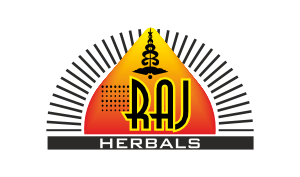Welcome to the aromatic world of coriander, scientifically known as Coriandrum sativum. This humble herb, native to regions spanning from Southern Europe to Western Asia, has been prized for centuries for both its culinary and medicinal properties. In Ayurveda, coriander is known as “Dhanyaka,” and its seeds, leaves, and even roots are used for their therapeutic effects. Let’s delve into the fascinating history and diverse uses of coriander in Ayurvedic medicine
Historical Significance: Coriander has a rich history dating back to ancient civilizations such as the Egyptians, Greeks, and Romans, who used it for culinary purposes and as a medicinal herb. In Ayurveda, coriander has been mentioned in ancient texts like the Charaka Samhita and Sushruta Samhita for its digestive, detoxifying, and cooling properties.
Botanical Description: Coriander is a member of the Apiaceae family and is characterized by its delicate, umbrella-shaped clusters of white or pink flowers and small, round seeds. Both the seeds and leaves of the coriander plant are used in cooking and herbal medicine, each offering its unique flavor and health benefits.
The Health Benefits of Coriander in Ayurveda
Coriander is revered in Ayurveda for its diverse range of health benefits, thanks to its rich array of vitamins, minerals, and phytonutrients. From supporting digestion to reducing inflammation, coriander offers a holistic approach to wellness. Let’s explore some of the key health benefits of coriander
Digestive Support: Coriander seeds are renowned for their carminative and digestive properties, making them a popular remedy for indigestion, bloating, and gas. They stimulate the secretion of digestive enzymes, improve gut motility, and help alleviate symptoms of gastrointestinal discomfort.
Detoxification: In Ayurveda, coriander is valued for its detoxifying properties, which help remove toxins and impurities from the body. Coriander seeds are known to support liver function, enhance bile production, and promote the elimination of waste, making them an essential ingredient in detoxifying herbal formulations.
Anti-inflammatory Effects: Chronic inflammation is a common underlying factor in many health conditions, from arthritis to heart disease. Coriander contains powerful anti-inflammatory compounds such as linalool and limonene, which help reduce inflammation throughout the body and alleviate symptoms of pain and swelling.
Culinary and Medicinal Uses of Coriander
Coriander is a versatile herb that can be used in both culinary and medicinal preparations. Whether you’re adding it to your favorite curry or brewing it into a soothing tea, coriander offers endless possibilities for enhancing flavor and promoting health. Let’s explore some common culinary and medicinal uses of coriander
Culinary Uses: Coriander is a staple in many cuisines around the world, prized for its citrusy, aromatic flavor. The leaves, known as cilantro, are often used as a garnish or added to salads, salsas, and soups for a fresh burst of flavor. The seeds are ground into a powder and used as a spice in curries, stews, and spice blends.
Medicinal Uses: In Ayurvedic medicine, coriander is used in various forms to treat a wide range of health conditions. Coriander tea, made from steeping crushed coriander seeds in hot water, is used to soothe digestive issues, promote detoxification, and relieve symptoms of colds and flu. Coriander oil is used topically to alleviate muscle pain, inflammation, and skin conditions.
How to Incorporate Coriander into Your Wellness Routine
Incorporating coriander into your daily wellness routine is easy and delicious. Whether you prefer to use the seeds, leaves, or oil, there are countless ways to enjoy the health benefits of coriander. Here are some simple ideas to get you started:
Spice Up Your Cooking: Add ground coriander seeds to your favorite dishes, such as curries, soups, and roasted vegetables, for a warm, citrusy flavor. Fresh cilantro leaves can be chopped and added to salads, salsas, and marinades for a burst of freshness.
Brew a Soothing Tea: Make a calming cup of coriander tea by steeping crushed coriander seeds in hot water for 5-10 minutes. Add honey or lemon for sweetness and enjoy as a soothing and digestive aid.
Try Coriander Oil: Incorporate coriander essential oil into your skincare routine by diluting a few drops in a carrier oil and applying it to the skin. Coriander oil can help soothe inflammation, reduce acne, and promote a clear, radiant complexion.
As we conclude our exploration of coriander in Ayurveda, we’re reminded of its remarkable healing properties and culinary versatility. Whether used to spice up a meal or soothe digestive woes, coriander offers a wealth of benefits for both body and mind. By incorporating coriander into your wellness routine, you can tap into its ancient wisdom and experience the transformative power of this unsung hero of the spice rack. So why not embrace the healing magic of coriander and discover a healthier, more vibrant you?






